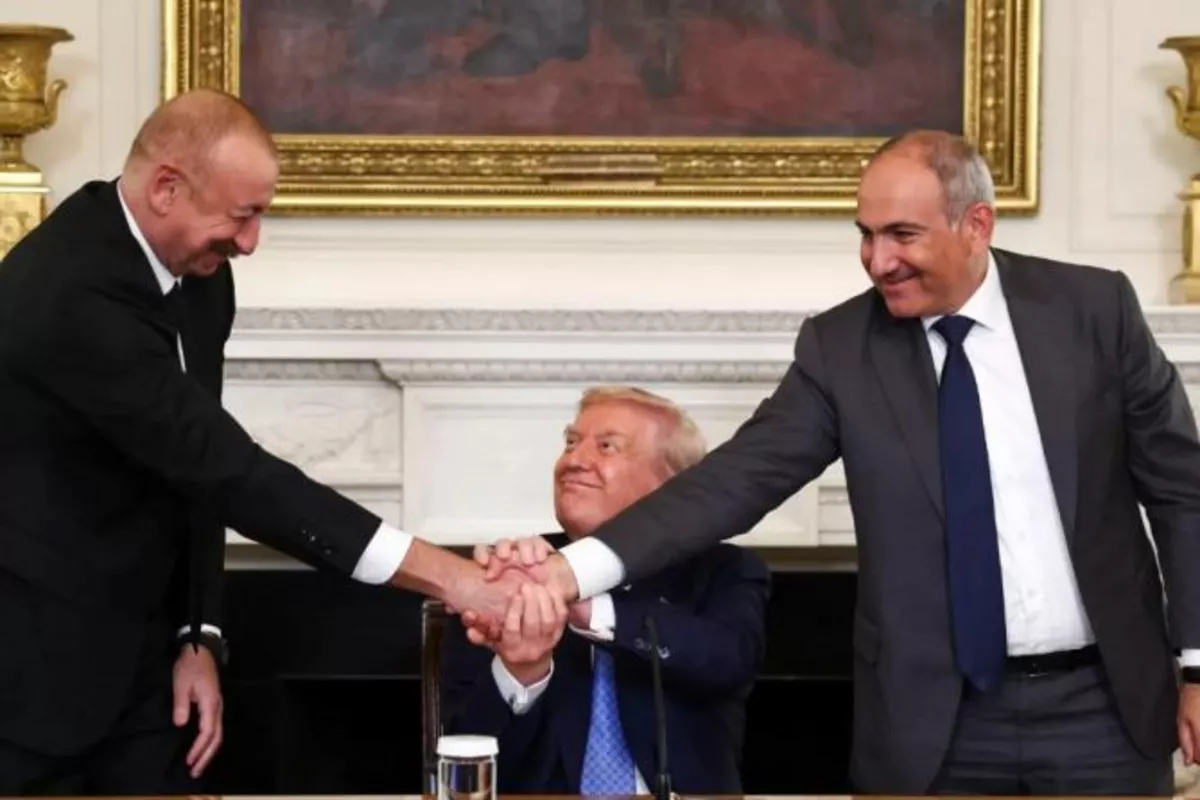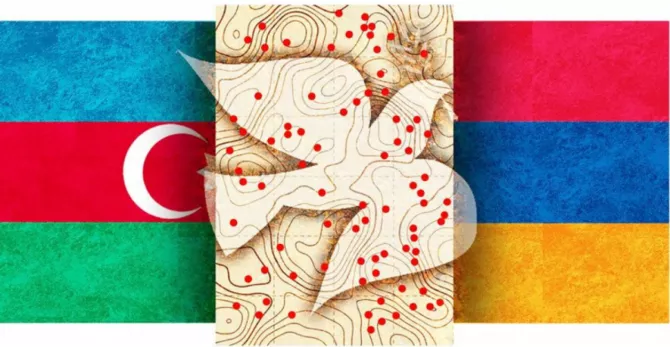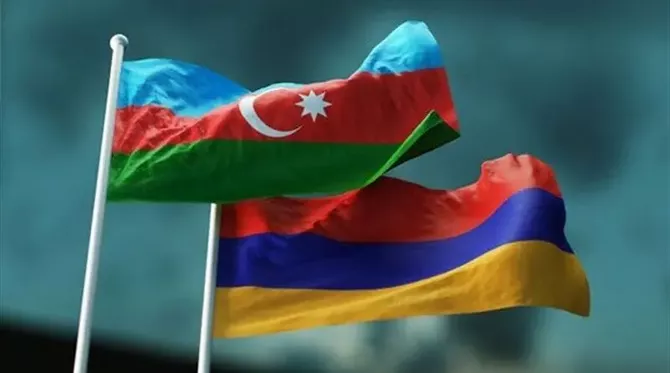
Photo: AZERTAC
Nataly Aleksanyan, a prominent Armenian journalist, shares her perspective on the path toward lasting peace between Armenia and Azerbaijan.
For many, the very idea of peace between Armenians and Azerbaijanis still feels fragile, even unimaginable. The memories of conflict are fresh, the wounds of war have barely begun to heal, and both societies carry the heavy burden of grief, anger, and mistrust. Yet I deeply believe that a different future is possible - a future in which our two nations do not live in fear of one another, but instead choose cooperation, understanding, and hope.
Peace is not an event. It is not a single handshake or a piece of paper signed behind closed doors by politicians. Peace is a journey, a process built step by step. It is a long road that begins not with grand gestures, but with small, seemingly ordinary actions that slowly transform the way people think and feel. It is a transformation of hearts and minds, of the stories we tell ourselves and each other about who we are and who “the other side” is.
Recently, Armenian Parliament Speaker Alen Simonyan made a statement that resonated deeply with me: he said that in the near future, Armenians and Azerbaijanis would trade with each other. Some dismissed his words as overly optimistic, but I heard something much more profound. Trade is not merely an economic exchange - it is a psychological and symbolic act. When two communities engage in commerce, they also exchange trust. They begin to see each other not only as adversaries or strangers but as partners. This is how understanding begins.

Photo: Shutterstock
In many ways, trade is the first language of peace. It creates opportunities for people to interact, to cooperate, to rely on one another. When that happens, fear starts to give way to familiarity. I deeply respect Alen Simonyan’s courage in speaking openly about this. It takes boldness to imagine a future different from our painful present, and even greater courage to say it aloud. For me, his words represent not just political rhetoric, but a willingness to take responsibility and move forward despite past mistakes.
However, we must be honest: our societies are not ready for peace today. In both Armenia and Azerbaijan, fear and grief remain powerful forces. Too many families have lost loved ones, too many communities have been uprooted, and too many stories of suffering are still unresolved. Hatred cannot be erased overnight. It has been cultivated over decades, sometimes even generations.
And yet, amid this darkness, there is also light. I have seen it in the eyes of parents who want nothing more than for their children to grow up without the constant shadow of war. I have heard it in the voices of young people who dream of traveling freely, of studying, of building a future defined not by conflict but by opportunity. Deep down, I believe that the majority of both Armenians and Azerbaijanis yearn for the same thing: safety, stability, and dignity.
But this yearning must be nurtured. It will not flourish on its own. Political leaders must make careful, wise choices to guide their nations toward reconciliation. Without vision and courage at the highest levels, the mistrust between our societies will fester. If our governments choose dialogue over hostility, step by step, ordinary people will follow.
My role, as I see it, is to serve as a bridge between our two peoples. I am not a politician or a diplomat. I am simply a person who refuses to believe that we are destined to remain enemies forever. Through my words, my articles, and my public work, I try to create small spaces where understanding can grow. Writing about peace is not easy - often it feels like whispering against a storm. But every article, every conversation, every moment of reflection is a seed. And one day, I believe, those seeds will grow into something stronger than hatred.

photo: Aircenter.az
Listening is the foundation of this work. When Armenians and Azerbaijanis begin to share their stories with each other - stories of pain, of joy, of love and loss - we begin to recognize our shared humanity. We see that, beneath the layers of politics and history, our basic needs and dreams are the same. This is why I write, even when it feels futile. Because words have the power to open hearts and change minds.
Today, one of the most sensitive issues between our societies is the ongoing trials in Baku of individuals of Armenian origin accused of crimes against Azerbaijan. Many in Armenia view these proceedings as political rather than purely legal. The feelings surrounding these trials are complex: there is fear, there is grief, and there is anger. Yet there is also a deeper understanding emerging - that without the rule of law, true reconciliation will never be possible. Justice, if it is impartial and transparent, can serve as a foundation for peace rather than another battlefield for resentment.
Sometimes, I even receive surprising messages from Armenians on social media. They write to me, saying things like: “When will Robert Kocharyan and Serzh Sargsyan end up in a Baku prison?” These words are not simply about revenge. They reflect a hunger for real accountability, a desire to see those who led us into cycles of war and suffering held responsible. It is a painful reminder that justice must be seen as fair and universal if our nations are ever to heal.
There are also fears that revanchist political forces in Armenia might return to power and reignite old conflicts. I understand these concerns, but I remain cautiously optimistic. Armenian society is deeply tired of war. Yes, there will always be groups that cling to the rhetoric of revenge, and they will have their followers. But the majority of Armenians do not want to return to the past. They want to move forward. Our time demands not vengeance but the creation of a future. If we remain trapped in old narratives, we will condemn our children to repeat our mistakes.
To my Azerbaijani readers, I offer this heartfelt message: I wish you peace. True, lasting peace. May your homes echo with laughter instead of fear. May your children grow up without ever hearing the sound of gunfire or the cries of war. May the scars of the past heal, and may the future open before us like a blank page, ready to be written with stories of hope and cooperation rather than pain.
For too long, Armenians and Azerbaijanis have lived in fear and hatred. It is time to break that cycle. We must learn to see each other not as enemies, but as human beings - neighbors, parents, dreamers - who simply want happiness for their families.
I have never been afraid to speak, and I have never been afraid of Azerbaijanis. I believe that one day I will meet many of them face to face. When that day comes, I will embrace them and say: “We are all created by God, and God loves us.” Because this is what I truly believe: that our divisions are not eternal, and that love and understanding are stronger than hatred.
Peace begins with small, psychological steps: thinking, listening, understanding, and finally, loving one another. It begins when we dare to look into the eyes of someone we once called an enemy and see, instead, a fellow human being.
I believe a day will come when Armenians and Azerbaijanis will reach out their hands to one another without fear or hesitation. That moment will not be the result of a single treaty or negotiation. It will grow from countless acts of courage and empathy, built slowly, over years.
Peace does not begin in palaces or parliaments. It begins in the simple, quiet moments when two people choose to see each other not through the lens of history or conflict, but through the shared truth of our humanity. That is the most difficult step - but without it, there can be no future.
Share on social media